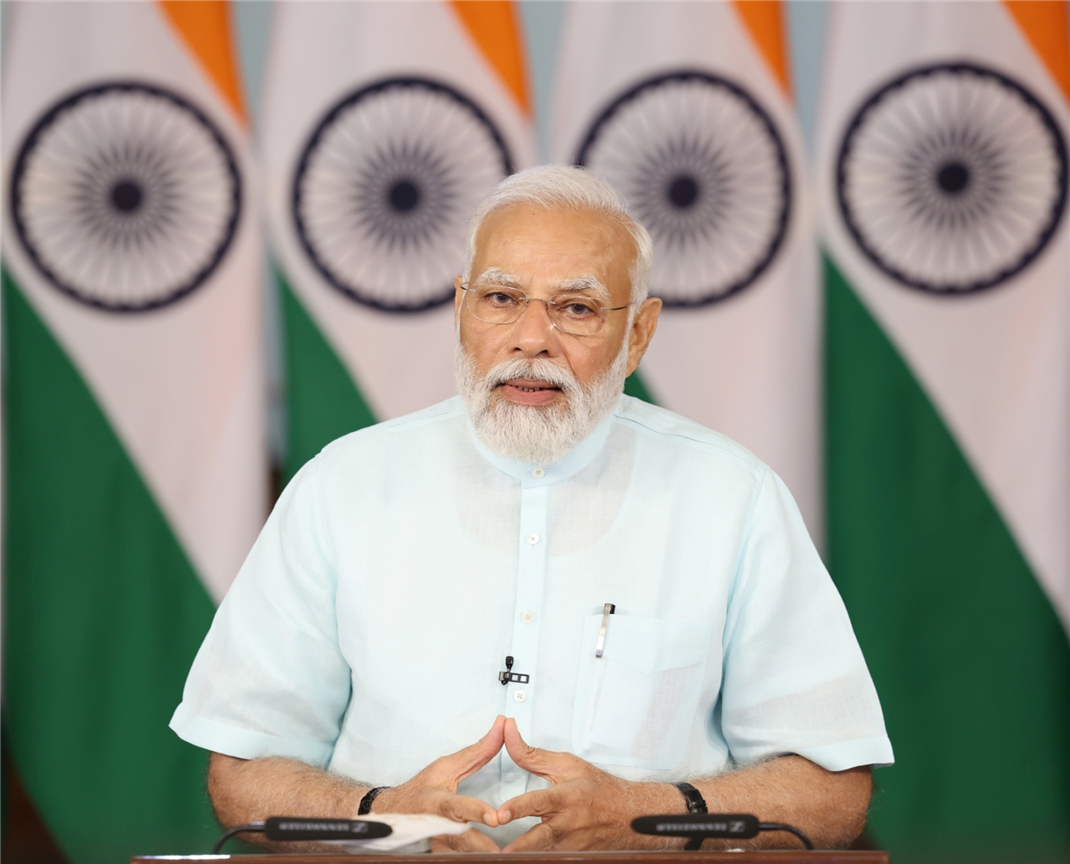


Prime Minister Narendra Modi will chair the ninth Governing Council Meeting of Niti Aayog, where the Approach Paper for the Vision Document on Viksit Bharat @2047 will be discussed. However, most of the Chief Ministers of Opposition ruled States have given a call for boycott. The meeting aims to foster participative governance and collaboration between the Centre and State governments to enhance the quality of life for both rural and urban populations.
Boycott of Niti Aayog Meeting: A Growing Divide Between Centre and States
The upcoming Niti Aayog governing council meeting, scheduled for June 15, has become a flashpoint for growing tensions between the central government and opposition-ruled states. Chief ministers from West Bengal, Telangana, Andhra Pradesh, Punjab, and Chhattisgarh have announced their boycott of the meeting, citing concerns over the Centre's alleged bias against non-BJP-ruled states.
Background:
Niti Aayog, established in 2015, replaced the erstwhile Planning Commission as the primary government think tank. It comprises the Prime Minister as its chairman, chief ministers of all states and Union Territories, and other nominated experts. The mandate of Niti Aayog is to foster cooperative federalism, develop national and regional plans, and promote sustainable development.
Reasons for Boycott:
The opposition chief ministers have accused the Centre of using Niti Aayog to bypass the established channels of inter-governmental consultation and cooperation. They allege that the central government has repeatedly ignored the concerns and recommendations of opposition-ruled states, leading to a loss of trust.
Specific concerns raised by the chief ministers include:
Implications:
The boycott of the Niti Aayog meeting by opposition chief ministers is a significant development that threatens to further strain relations between the Centre and non-BJP-ruled states. It highlights the deep divisions within the country and the challenges facing the spirit of cooperative federalism.
The boycott could also have practical implications for the work of Niti Aayog. With key states absent, it will be difficult for the body to achieve its mandate of promoting consensus and collaboration on national and regional plans.
Top 5 FAQs:
1. Why are opposition chief ministers boycotting the Niti Aayog meeting? A: They are alleging discrimination by the Centre, lack of consultation, and erosion of states' autonomy.
2. Which states are boycotting the meeting? A: West Bengal, Telangana, Andhra Pradesh, Punjab, and Chhattisgarh.
3. What is the mandate of Niti Aayog? A: To foster cooperative federalism, develop national and regional plans, and promote sustainable development.
4. What are the key concerns raised by the boycotting chief ministers? A: Discrimination in resource allocation, centralization of power, and insufficient funding for key projects.
5. What are the implications of the boycott for Niti Aayog's work? A: It could hinder the body's ability to achieve consensus and promote collaboration on national and regional plans.

As part of the 'Sardar 150' initiative, Chief Minister Bhajan Lal Sharma of Rajasthan led a Unity March to pay tribute to Sardar Vallabhbhai Patel and his contribution to India's unity. The march, which saw a large number of participants, journeyed from Gandhi Circle to Amar Jawan Jyoti and highlighted the importance of national unity and prioritizing national interest. The Chief Minister also emphasized the role of Sardar Patel in the integration of princely states into a unified India after Independence.

The FBI has announced the foiling of a potential terrorist attack in Michigan, with multiple suspects arrested for allegedly plotting a violent act over Halloween weekend. FBI Director Kash Patel shared the news on social media, thanking law enforcement for their efforts in preventing the alleged attack. While details about the suspects and the planned attack are still unknown, the FBI has promised to release more information soon.

The government has approved the appointment of Supreme Court judge Justice Surya Kant as the next Chief Justice of India. He will take over from the incumbent CJI, Bhushan R Gavai, in November 2025 and will serve for 14 months. With an impressive career spanning over 37 years, Justice Kant has held various positions in the judiciary and legal service institutions. Let's take a closer look at his journey from a middle-class family in Haryana to the highest judicial post in India.

In a review meeting of the state's religious tourism projects, Chief Minister Mohan Yadav emphasized the need for balanced development in the pilgrimage town of Chitrakoot. He suggested that the Parikrama Path be developed before the construction of the Shri Ram Path Gaman to attract domestic and international tourists. Additionally, he stressed on the importance of crowd management during pilgrim festivals and the development of a wellness center for medical tourism in Chitrakoot.

In a recent social media post, Indian Prime Minister Narendra Modi praised the 'Statue of Unity' as a symbol of tribute to Sardar Patel and a testament to the power of a people's movement. The iconic statue, located at Kevadia in India, has been drawing visitors from all over the country, especially from rural areas, who feel a deep connection with its grandness. PM Modi urges everyone to visit Kevadia and experience the monument for themselves.

Prime Minister Narendra Modi's spontaneous gesture of walking and mingling with thousands of citizens, security personnel, and participants at the Ekta Parade ground in Gujarat highlights his deep reverence for Sardar Vallabhbhai Patel on the Iron Man's 150th birth anniversary. Dressed in his signature kurta, PM Modi paused to take selfies, exchange high-fives, and engage in conversations, eliciting cheers and chants of "Modi! Modi!" and "Bharat Mata Ki Jai!" from the diverse audience. This display of humility and national pride showcases PM Modi's commitment to Sardar Patel's dream of Ek Bharat, Shreshtha Bharat.

The nation comes together to remember and honor the life and legacy of Smt. Indira Gandhi, India's first and only woman Prime Minister, on the 41st anniversary of her martyrdom. Her courage, conviction, and unyielding spirit of service continue to inspire generations, as top leaders of the Congress offer floral tributes at Shakti Sthal in New Delhi. Congress leader Rahul Gandhi and CPP chairperson Sonia Gandhi remember their grandmother as a symbol of fearlessness, compassion, and unwavering commitment to the Indian people. Jairam Ramesh and Pawan Khera recount two pivotal moments in Indira Gandhi's political journey - her visit to Belchi and her meeting with opponent Jayaprakash Narayan - that cemented her place as a leading stateswoman.

On the 150th birth anniversary of Sardar Vallabhbhai Patel, Prime Minister Narendra Modi visited Gujarat and paid homage to the leader at the Statue of Unity. He also announced the release of a special coin and stamp in honor of Patel's contribution towards uniting India after independence. National Unity Day is observed every year on October 31 to remember Patel's crucial role in promoting national integration and unity in the country through his leadership and establishment of the All-India Services.

On the 150th birth anniversary of Sardar Vallabhbhai Patel, Prime Minister Narendra Modi paid tribute to the leader's contribution in uniting over 500 princely states. Addressing the Rashtriya Ekta Diwas celebrations in Gujarat, PM Modi emphasized the importance of 'Ek Bharat, Shreshtha Bharat' for Sardar Patel and praised his determination and hard work in making a united India a reality. The day also saw the release of a special commemorative coin and postage stamp in memory of the Iron Man of India.

On the 41st anniversary of her death, India reflects on the life and legacy of Indira Gandhi, the first and only female Prime Minister of the country. From her turbulent political journey to her bold reforms and enduring influence, Gandhi's impact on India's development and global position remains unparalleled. Despite facing challenges and controversy, she persevered and left a lasting mark on Indian politics and society.